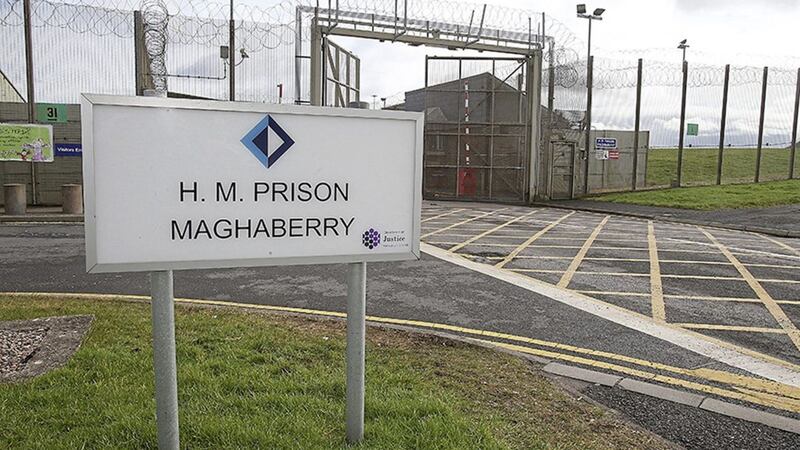MORE prisoners are on remand in Northern Ireland jails than have ever been recorded before - with one in three inmates unconvicted of any crime.
The Department of Justice (DoJ) has published its latest prison population report, looking at the average daily numbers of inmates and `receptions' into Northern Ireland jails during 2018/19.
There has been just a tiny increase of 0.6 per cent in the overall average number of prisoners to 1,448.
The overwhelming majority - 1,384 - remains male, with just 65 women (an increase from 57).
Nine out of 10 newly female inmates have received a sentence of one year or less.
However the number of prisoners on remand has increased by 18.5 per cent from 368 in 2017/18 to 436 this year - its highest level since reporting began in 2014/15.
People on `remand' have been detained in a prison until a later date ahead of a trial or sentencing hearing and the majority have not been convicted of a criminal offence and are awaiting trial following a `not guilty' plea.
The proportion of prisoners on remand has increased each year, rising from 23.3 per cent during 2014/15 to 24.7 per cent during 2015/16, 25.4 per cent during 2016/17, 25.6 per cent during 2017/18 and 30.1 per cent during 2018/19.
The report shows the average daily `immediate custody' prison population actually fell by 5.1 per cent to 1,006, its lowest level since reporting by financial year began in 2014/15.
Offenders are sent straight to prison where a judge deems they `present a risk/danger to the public; appropriate punishment can only be achieved by immediate custody (or they have) history of poor compliance with court orders
For the first time the largest proportion of prisoners are aged between 30 to 39 (32.9 per cent).
In each of the previous four financial years, the age group 21 to 29 years had accounted for the largest number of prisoners, indicating an ageing prison population.
By contrast, the proportion of those aged between 18 and 20 years of age has decreased to just 2.9 per cent - falling every year since 2014/15.
There were also "slight increases" in the numbers of those serving a life sentence and those serving a sentence of three months or less, (from 156 to 158 and 26 to 28 respectively).
One in three prisoners are incarcerated over `Violence Against the Person' offences - the largest proportion of all.
The number of `receptions' during 2018/19 was higher than the previous year, 5,252 compared to 5,092.
A first reception icounts a prisoner's first movement into custody following a court hearing and gives the best indication of the number of new prisoners in the reporting period.
Remand receptions increased by 15.1 per cent over the last year to 3,206, while the number for fine defaults fell by 39.3 per cent, from 611 to 371 in 2018/19.
The largest number of immediate custody receptions was within the 21 to 29 years age group - 39.2 per cent.



